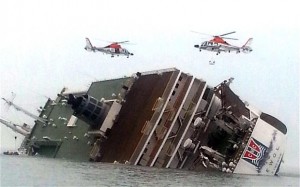BC Hydro wants to construct a dam and a 1,100-megawatt hydroelectric generating station on Peace River in northern BC – an area that lies right on the heart of the Tsilhqot’in First Nations reserve. Although in Canada we occasionally hear about the disputes between the aboriginal people and the government, I think that in order for us to truly understand the situation, we need to put ourselves into the shoes of the aboriginals. If you had a home that was in your family possession for many generations and someone wanted to come and build a project on – without your consent- what would your reaction be? In my opinion, the government is taking advantage of aboriginals because of the fact that they have little power and wealth. If a wealthy individual lived in a place where BC Hydro wanted to construct a dam, they would most likely have to go through a lot more persuasion and possibly give financial incentive.
This new project would flood 83 km of land as it is constructed, harming and destroying farmland and natural habitat. Additionally, it will directly affect the aboriginal people that live near the future construction site. The project would cause a significant negative effect on fishing, hunting, and prevent them from using the area for ceremonial practices. Liz Logan, the delegation member of the Fort Nelson First Nation strongly believes that the project would cause more harm than good and explains why the land is important to the aboriginals: “It’s our church, it’s our store, it’s our school. We have elders’ gatherings there annually,”
Also, aboriginals aren’t uninterested in pushing the economy forward with new projects, it is just simply that they want to do it in a way that doesn’t disturb their culture and the nature around them. Both the chiefs have stated that their communities want to support projects that incorporate wind, solar, and geothermal power. In order for this project to advance, I believe that BC Hydro must appropriately talk to the First Nation chiefs and discuss and learn how to cooperate with the aboriginal people’s wants and needs.



